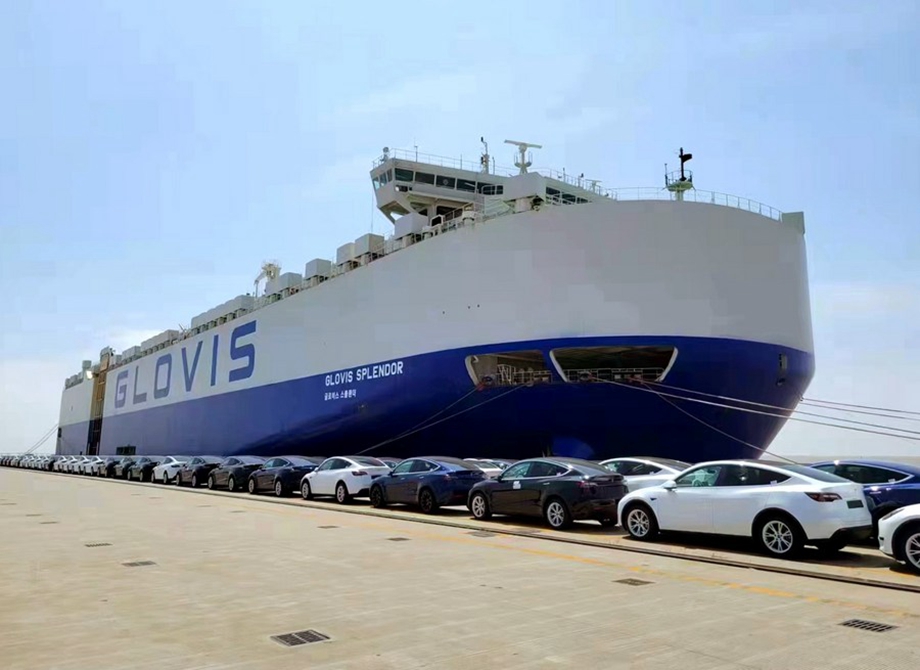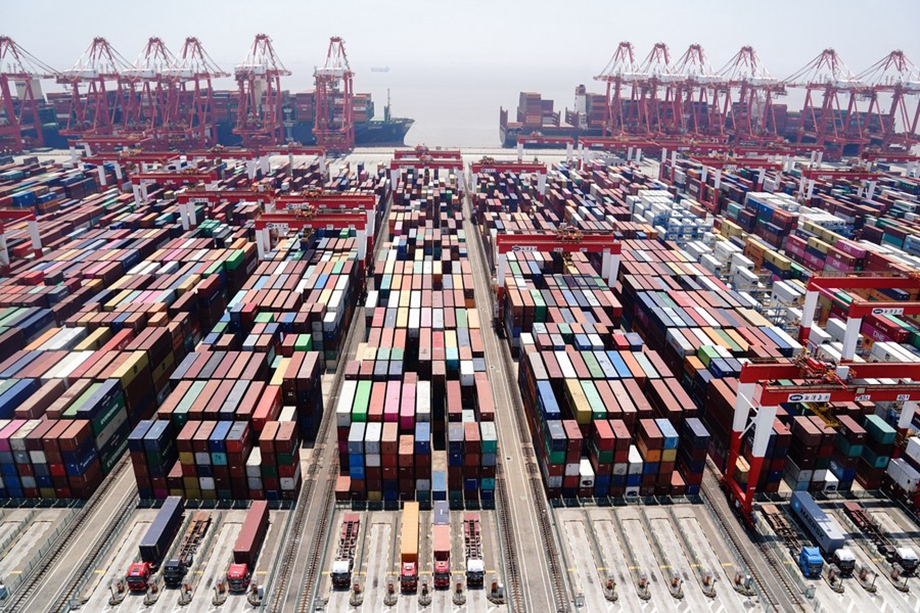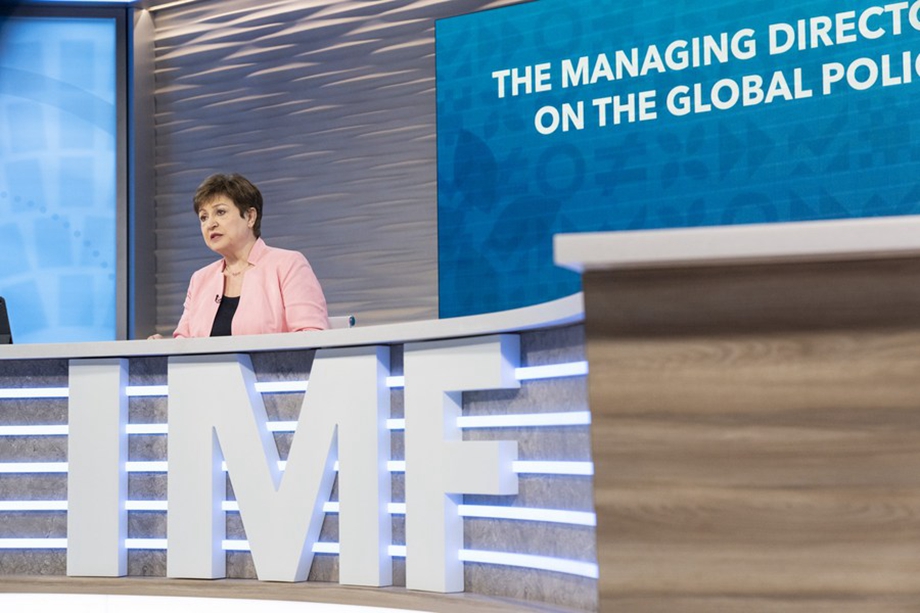Why pessimists are wrong about Chinese economy
* Far-sighted investors believe that short-term setbacks in the Chinese economy won't derail business growth in the long run.
* Despite the current pressure, fundamentals remain unchanged, and the economy still enjoys strong resilience, enormous potential, vast room for maneuver and long-term sustainability.
* "The rise of China, and its powerhouse economy, remains by far the most important story of the 21st century," said one opinion piece in The Telegraph. While there may be some bumps in the short term, China's long-term economic development remains a sure bet.
Amid the latest COVID-19 flare-ups in China, fallacies have emerged in the Western media, from hyping up China's suffering from a loss in foreign investment and supposed economic stagnation to accusing China of exacerbating the global supply chain crisis and drawing smaller economies into "debt traps."
The ultimate goal of these bizarre claims is to discredit China's economy and its dynamic zero-COVID policy.
None have a leg to stand on.
 A ship is loaded with electric cars produced by U.S. automaker Tesla's Shanghai Gigafactory, before leaving for Slovenia from a port in east China's Shanghai, May 11, 2022. (Xinhua)
A ship is loaded with electric cars produced by U.S. automaker Tesla's Shanghai Gigafactory, before leaving for Slovenia from a port in east China's Shanghai, May 11, 2022. (Xinhua)
STILL IDEAL INVESTMENT DESTINATION
First, all that is needed is a simple review of the hard data and interviews with business insiders to avoid the absurd belief that foreign capital is leaving China.
In the first four months, foreign direct investment (FDI) into the Chinese mainland, in actual use, expanded 26.1 percent year on year to 74.47 billion U.S. dollars. The country saw 185 newly-added major projects during the period, each with foreign investment of over 100 million dollars.
These figures again demonstrate that China remains one of the preferred destinations for global investors.
John Ross, former director of Economic and Business Policy of London, has refuted the view calling on foreign companies to leave or minimize investment in China, stressing the most important thing is to examine the facts.
As for the balance between COVID-19 controls and economic development, Ross said, "China dealt with it quite successfully and this therefore helps its economy to rebound quickly," highlighting "The results show that because the economy grew very quickly, this makes it much more attractive to FDI."
A recent report released by the American Chamber of Commerce in South China has indicated that more than 70 percent of the assessed companies have reinvestment plans in China for 2022, and 58 percent consider their overall return on investment in China to be higher than in other places.
In fact, despite temporary fluctuation facing the Chinese economy, several global investment banks, such as Goldman Sachs Group and JP Morgan Chase, still earmarked Shanghai as a target for major investment in the coming years, the Financial Times reported.
Clearly, far-sighted investors believe that short-term setbacks in the Chinese economy won't derail business growth in the long run.
 Managing Director of the International Monetary Fund (IMF) Kristalina Georgieva speaks during a virtual press conference in Washington D.C., the United States, April 20, 2022. (Cory Hancock/IMF/Handout via Xinhua)
Managing Director of the International Monetary Fund (IMF) Kristalina Georgieva speaks during a virtual press conference in Washington D.C., the United States, April 20, 2022. (Cory Hancock/IMF/Handout via Xinhua)
ECONOMIC MOMENTUM REMAINS STRONG
Although the Chinese economy has encountered several difficulties and challenges so far this year, it is still too early to think that the country's economic growth is slowing down.
As one of the first countries to resume work and production, China became the only major economy to register positive growth in 2020, with its GDP surpassing 114.4 trillion yuan (about 18 trillion dollars) in 2021. These achievements indicate that China's economic fundamentals are solid enough to maintain its growth momentum.
Despite the current pressure, fundamentals remain unchanged, and the economy still enjoys strong resilience, enormous potential, vast room for maneuver and long-term sustainability.
China is capable of boosting its economy amid headwinds because it has "ample" policy space, both in terms of monetary policy and fiscal policy, Kristalina Georgieva, managing director of the International Monetary Fund, said in April, adding that China's growth "remains in positive territory."
Similarly, in a recent interview with Xinhua, Khairy Tourk, professor of economics with the Stuart School of Business at the Illinois Institute of Technology in Chicago, noted that the Chinese economy prioritizes long-term structural growth over the short-term, saying he has full confidence in the robust Chinese foreign trade sectors. "I feel quite optimistic about the country realizing its potential," he said.
In the face of challenges, thanks to a slew of pro-growth measures, the Chinese economy is off to a steady start this year, with its GDP up 4.8 percent year on year in the first three months.
"This is a good achievement, benefiting from the economic performance and front-loading macro policy support in the first two months," Jerry Zhang, chief executive officer of Standard Chartered Bank (China), told Xinhua in a recent written interview.
"The impact of the epidemic and global geopolitical risks may continue in the short term, but we think the fundamentals of a resilient, high-potential and prosperous economy in China remain intact," Zhang added.
 Workers make chips for export at an electronics company in Sihong, east China's Jiangsu Province, Feb. 23, 2022. (Photo by Xu Changliang/Xinhua)
Workers make chips for export at an electronics company in Sihong, east China's Jiangsu Province, Feb. 23, 2022. (Photo by Xu Changliang/Xinhua)
GLOBAL SUPPLY CHAIN STABILIZER
The Western media claimed that China's fight against COVID-19 may lead to a supply chain crisis. Instead of blaming China, they should first reflect on the "de-globalization" and protectionism advocated in their own countries.
While the United States and other Western countries are undergoing supply chain disruptions caused by the labor shortage crisis and a massive backlog of cargo at several ports, China has played a vital role in maintaining the stability of global supply chains with its solid industrial base, resilient supply chain and science-based policies.
From January to April, China's total imports and exports expanded 7.9 percent year on year to 12.58 trillion yuan (about 1.9 trillion dollars), proving that China has successfully minimized the epidemic's negative impact on trade.
Although trans-regional cargo transport in some parts of China was temporarily disturbed by the new wave of Omicron, most of the supply chains within the country are operating smoothly. Impacted factories are gradually resuming production, allowing China to continue contributing to world supply chain stability.
"China still holds the cards for global supply chains," CNBC wrote on May 16. In the same piece, Vishrut Rana, a Singapore-based economist at S&P Global Ratings, was quoted as saying, "China still remains at the very center of the electronics network" the Asia-Pacific region.
Rana added that "the movement out of local manufacturing is not going to be significant enough to really alter the nature of China's role in the overall supply chain."
 Photo taken on May 17, 2022 shows a view of the automated container terminal of Shanghai Yangshan Deep Water Port in east China's Shanghai. (Xinhua/Ding Ting)
Photo taken on May 17, 2022 shows a view of the automated container terminal of Shanghai Yangshan Deep Water Port in east China's Shanghai. (Xinhua/Ding Ting)
PARTNER WITHOUT POLITICAL STRINGS
The Western media continue to accuse China of laying "debt traps" worldwide, particularly in developing countries.
Lending is simply an economic transaction to acquire external finance for economic development, while debt with harsh political conditions or malicious purposes are "traps." The West's hype is aimed at politicizing economic issues and tarnishing China's cooperation with other countries.
In fact, China's portion of the external debt of many developing countries is smaller than some realize.
Until 2020, Latin America was the region with the highest debt ratio in the world. Most of the region's foreign debt comes from the international financial markets, with Wall Street and some Western commercial banks as the leading players, not China, Zhou Yuyuan, a senior research fellow with Shanghai Institutes for International Studies, told Xinhua.
Similar cases can be seen in Africa, Zhou said, noting that the amount of money borrowed from the private financial sector has risen rapidly, becoming the largest source of external debt.
Moreover, although China has not offered as many loans as Western banks, its investment and loans are more welcomed.
According to an article in The Diplomat magazine, many low- and middle-income countries prefer Chinese investment over U.S. and European alternatives, since rich countries see developing countries as high risk and low reward and often impose onerous conditions.
As the world's second-largest economy, China offers exciting market opportunities for all countries, injecting momentum into global economic growth.
"The rise of China, and its powerhouse economy, remains by far the most important story of the 21st century," said one opinion piece in The Telegraph.
While there may be some bumps in the short term, China's long-term economic development remains a sure bet. (Video reporters: Wang Huan, Ali Jaswal, Jiang Chao, Tariq Hameed, Ding Ting, Chen Binjie, Chen Junxia and Jiang Xuelan; video editors: Peng Ying and Luo Hui)■








